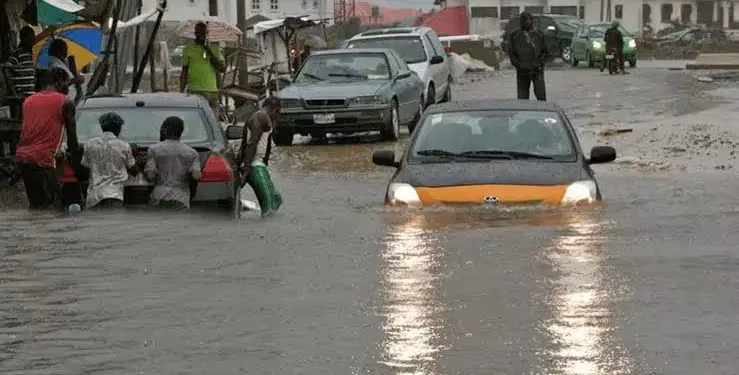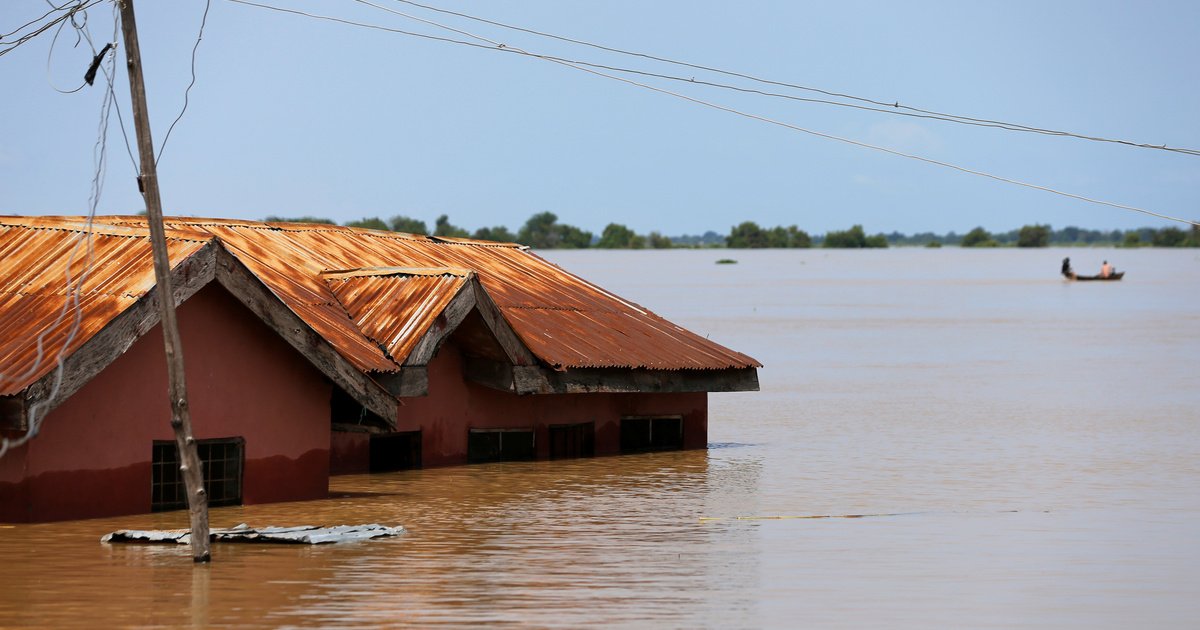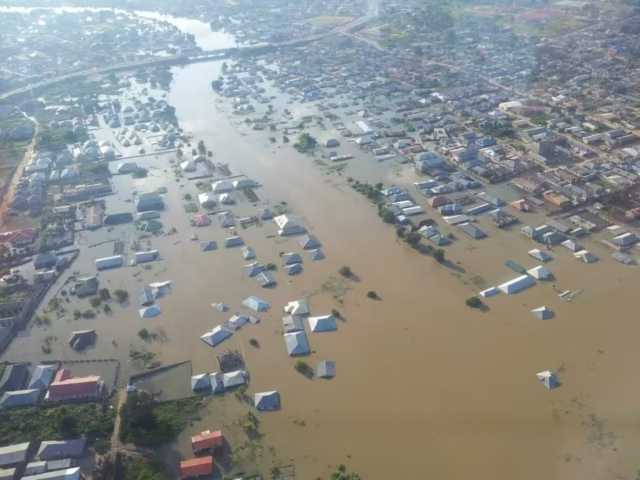The federal government has predicted five days of intense rains that could cause floods in 76 areas and 19 states.
Residents and stakeholders were urged to take immediate precautions in the warning, which was released Tuesday by the Federal Ministry of Environment’s National Flood Early Warning Systems Centre.
This occurs after disastrous flooding hit Ogun and Gombe states on Tuesday. Other states that were impacted by the tragedy were Lagos, Plateau, Anambra, and Delta.

Rainfall is predicted to create flooding in the afflicted districts between August 5 and August 9, 2025, according to the center’s flood projection, which our correspondent was able to obtain.
Akwa-Ibom (Edor, Eket, Ikom, Oron, Upenekang); Bauchi (Tafawa-Balewa, Azare, Jama’are, Kari, Misau, Jama’a); Ebonyi (Abakaliki, Echara, Ezilo); Cross-River (Ogoja Edor, Obubra); Nasarawa (Keana, Keffi, Wamba); Benue (Agaku, Buruku, Gboko, Igumale, Ito, Katsina-Ala, Ugba, Vande-Ikya); Kaduna (Jaji, Kafancha, Birnin-Gwari, Zaria); and Katsina (Bindawa, Bakori, Daura, Funtua).

The others are the following: Niger (Kontagora, Rijau, Ringim); Plateau (Mangu); Taraba (Donga, Takum); Jigawa (Diginsa, Gumel, Dutse, Gwaram, Hadejia, Miga); Yobe (Machina, Potiskum); Zamfara (Anka); Sokoto (Sokoto, Wamakko); Borno (Biu); and Kano (Bebeji, Gezawa, Gezawa, Gwarzo, Kano, Karaye, Tundun-wada, Ribah, Sakaba, Saminaka, Yelwa, Gauri-Banza; and Niger (Kontagora, Rijau, Ringim).
In Nigeria, flooding has become a yearly event that destroys numerous properties and takes lives. According to reports, flooding struck 31 states last year, killing hundreds, hurting thousands, and affecting 1.2 million people.
The Alau Dam fell on September 10, 2024, resulting in floods in Borno State that killed at least 150 people, displaced 419,000 others, and submerged 70% of the community.

This year has seen a number of flooding incidents across the nation that have resulted in property damage, fatalities, injuries, and displacement. In May, Mokwa, Niger State, had the deadliest flood of the year, which is said to have killed at least 200 people and left others displaced.
While Mokwa was the most severely affected area, other parts of Nigeria also experienced this disaster in 2025. The disaster affected multiple states, including Rivers State – where torrential rains caused floods and landslides that buried homes and swept people away in the city of Okrika, killing at least 25 people – and put millions of people at risk.
In April, at least 13 people were killed in Kwara State and Mokwa, including three people on a canoe that capsized on a flooded river, and rice fields were destroyed after disaster triggered by the routine water release from the Jebba Hydroelectric Power Station dam affected 30 communities.

Recently, the National Economic Council approved the release of intervention funds to support nationwide flood mitigation and response efforts.
According to a dashboard made public by NEMA last Friday, this year’s disaster has left at least 165 people dead, 82 people missing, and 119,791 people impacted.
Additionally, the government said that 8,594 homes were impacted, 43,936 people were displaced, 138 people had various degrees of injury, and 8,278 farmlands were devastated in 43 Local Government Areas throughout 19 States.
The agency stated the majority of those impacted were women and children.

Meanwhile, a new report from the National Emergency Management Agency has revealed that in 2025, no fewer than 191 lives have been lost to the disaster that have ravaged parts of the country, while 94 people remain missing.
There have also been reports of 239 injuries and 48,056 displaced individuals. In addition, 9,499 homes and 9,450 farmlands have been impacted by the floods.
Additionally, NEMA’s dashboard showed that there are 1,874 people with impairments, 60,071 children, 27,121 males, 41,539 women, and 5,704 senior people among those impacted.
5,264,097 people were impacted by the disaster in 2024, which forced 1,243,638 people to relocate throughout 35 states and 401 local government entities. 16,469 people were hurt and 1,237 people died as a result of the tragedy.
Also, 116,172 houses were destroyed, and 1,439,296 hectares of farmlands were affected, further worsening the economic and humanitarian impact of the flooding across the country.
Join Our Social Media Channels:
WhatsApp: NaijaEyes
Facebook: NaijaEyes
Twitter: NaijaEyes
Instagram: NaijaEyes
TikTok: NaijaEyes








































